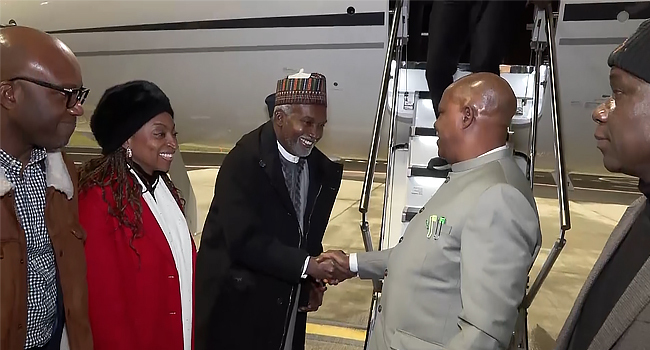A staggering 6.5 million people have been uprooted from their homes in Sudan due to the relentless conflict that continues to ravage the region, as reported by the International Organisation for Migration (IOM). Within this colossal number, more than 2,000 Sudanese refugees have sought refuge at Camp Milli 1 in eastern Chad, pleading with the United Nations Refugee Agency (UNHCR) to officially register them as displaced persons.
The situation remains dire as Chadian authorities and the UNHCR work tirelessly to facilitate the transfer of refugees from the Adré reception centre and border areas to the camps. Despite these efforts, newer waves of refugees, particularly those with family ties to Milli camp, are arriving directly at the camp grounds, adding to the overwhelming influx of displaced individuals.
The urgency of the situation is unmistakable, with Radio Dabanga’s correspondent in eastern Chad shedding light on the ongoing registration process in the Milli camp, set to conclude on November 25. This operation encompasses 7,000 Sudanese in Milli 1 and 15,000 in the new Milli 2 camp. The scale of displacement is undeniable, with over 400,000 people crossing into Chad since the eruption of war on April 15, a significant portion originating from West Darfur.
The brutality of the conflict is underscored by the profound human rights violations and numerous massacres that have claimed thousands of lives, particularly targeting the Masalit community in West Darfur. The gravity of the situation prompted Toby Harward, the Deputy UN Humanitarian Coordinator for Sudan, to express shock at the devastation in central El Geneina and the desolate Masalit residential areas.
On the digital platform, X, Harward lamented the looting and deliberate destruction of crucial facilities, including those operated by the UN, non-governmental organisations, and public services in Darfur. However, amidst the desolation, he remained hopeful about the prospect of market revival and the return of a small number of displaced individuals, citing improved humanitarian access.
In the midst of this ongoing turmoil, the UN Children’s Fund (UNICEF) sounded the alarm on the plight of at least 5 million children facing extreme deprivation of their rights and gravely imperiled by the conflict. Shockingly, the organisation reported a 450% surge in cases of children killed and injured in Darfur compared to the entirety of 2022, underscoring the harrowing toll the conflict has taken on innocent lives.
Meanwhile, in South Sudan’s Maban county, Sudanese students seeking refuge at the Doro Camp have voiced frustration over the lack of acceptance into universities in South Sudan, despite scholarships being offered to them since last September. These concerns echo those raised by Sudanese refugees in South Sudan’s Upper Nile state, who have also voiced grievances regarding the reduction of food rations.
The Doro refugee camp in Maban County, South Sudan, currently shelters over 300,000 refugees who fled Sudan’s Blue Nile region in the wake of the war instigated by the Khartoum regime in 2011.
As the crisis unfolds, the International Organisation for Migration Displacement Tracking Matrix (IOM-DTM) has highlighted the alarming surge in the number of internally displaced people and cross-border refugees since the onset of the conflict, totalling approximately 6.5 million individuals. Within Sudan, nearly 5.1 million people have been displaced across about 550 sites, with South Darfur recording the highest rate of displacement. A further 1.4 million people have crossed borders into neighbouring countries, underscoring the widespread impact of the conflict.



